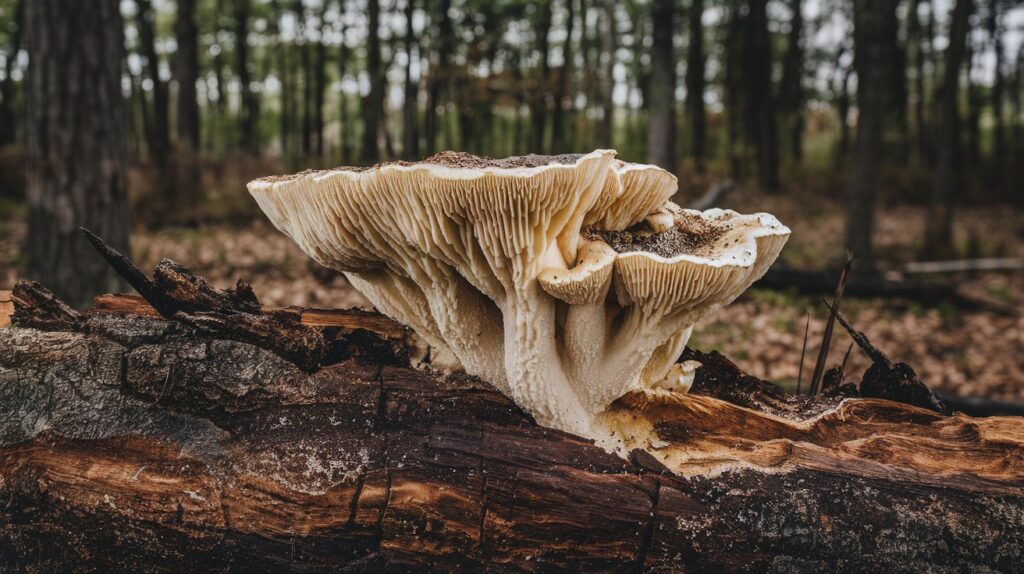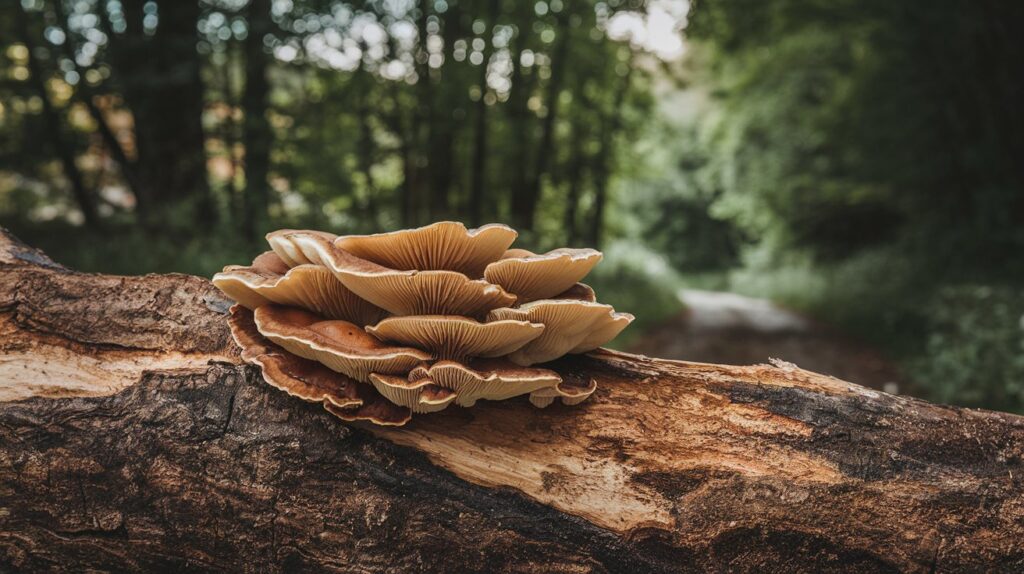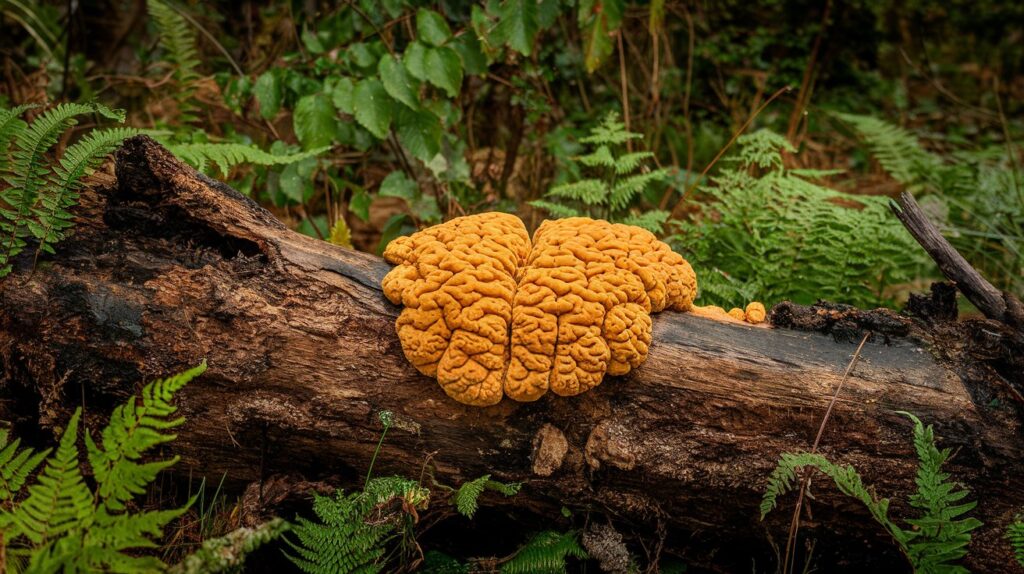
Introduction
In the vast ecosystem, decomposers play an essential role in breaking down dead organic matter and recycling nutrients back into the soil. These organisms, also known as saprotrophs, are critical to maintaining the balance in nature. Without them, we would be surrounded by dead plants, animals, and waste.
What are Decomposers?
Decomposers are organisms that break down dead or decaying matter, playing a vital role in the process of decomposition. They include fungi, bacteria, and certain invertebrates like earthworms. Through their action, nutrients are returned to the soil, helping plants grow and sustain the ecosystem.
Types of Decomposers
| Type of Decomposer | Example | Role in the Ecosystem |
|---|---|---|
| Bacteria | Pseudomonas | Break down proteins, fats, and carbohydrates in the soil. |
| Fungi | Mushrooms | Decompose dead plants and help in nutrient recycling. |
| Invertebrates | Earthworms | Break down organic material, aerate soil, and improve structure. |
Why Are Decomposers Important?
Decomposers play a key role in recycling nutrients, ensuring that essential elements like carbon and nitrogen are made available to plants. If these organisms didn’t exist, dead plants and animals would remain in the environment indefinitely. This would prevent the natural replenishment of soil nutrients and lead to the depletion of the ecosystem.
The Decomposition Process
The process of decomposition involves breaking down complex organic matter into simpler forms, which can then be absorbed by plants. Decomposers are responsible for the breakdown of:
- Dead plants and animals
- Organic waste
- Fallen leaves and wood
The decomposition process can be divided into several stages:
- Fragmentation – The breaking down of large pieces of organic matter.
- Leaching – The removal of soluble materials.
- Catabolism – The breakdown of organic matter by bacteria and fungi.
- Humification – The formation of humus (a dark, organic substance).
- Mineralization – Conversion of organic matter into minerals and nutrients.

Types of Decomposers in the United States
Different types of decomposers play various roles in the United States’ ecosystems. Some of the most common include:
- Fungi – Essential in breaking down wood and plant matter. They are responsible for decaying fallen trees in forests.
- Bacteria – Involved in breaking down dead animals, waste, and decaying plant matter.
- Invertebrates – Earthworms, beetles, and insects help in further fragmenting organic matter.
Examples of Decomposers Found in the United States
| Organism | Ecosystem | Main Function |
|---|---|---|
| Trichoderma (fungus) | Forests | Breaks down cellulose in dead wood. |
| Earthworms | Gardens and Forests | Breaks down plant material in soil. |
| Beetles | Grasslands | Decomposes dead plants and insects. |
How Decomposers Contribute to Soil Health
Decomposers not only recycle nutrients but also improve soil structure. Earthworms, for example, create channels in the soil, which increases aeration and helps roots grow. Fungi contribute to the formation of humus, a critical component of fertile soil.
- Soil aeration: Earthworms improve oxygen levels in the soil.
- Nutrient recycling: Decomposers break down dead organic matter, returning nitrogen, carbon, and other nutrients to the soil.

Impact of Decomposers on the Environment
Without decomposers, ecosystems would fail to thrive. Dead plants, animals, and waste would accumulate, causing a buildup of organic material. This would result in a lack of essential nutrients for plants. In extreme cases, such as the absence of decomposers in aquatic systems, we would face water pollution due to excessive waste accumulation.
“Decomposers are nature’s recycling champions. Without their tireless efforts, the circle of life would cease to function.” – Environmental Scientist, Dr. Jane Smith
Common Decomposers in Your Backyard
You might not realize it, but your backyard is teeming with decomposers. These unsung heroes of the soil are hard at work, breaking down plant material and improving the health of your garden. Some common backyard decomposers include:
- Mushrooms: Often found growing on fallen logs and in damp areas.
- Beetles: Feed on decaying plants and organic matter.
- Earthworms: Break down leaves and other organic materials into nutrient-rich compost.
Simple Ways to Encourage Decomposers in Your Garden
| Method | How it Helps |
|---|---|
| Composting | Provides food for decomposers, improving soil. |
| Mulching | Keeps the soil moist, encouraging decomposer activity. |
| Reducing pesticide use | Protects earthworms and beneficial bacteria. |
Conclusion
Decomposers are an irreplaceable part of the ecosystem, ensuring the continuous recycling of nutrients. They help maintain the balance in nature by breaking down dead matter and returning nutrients to the soil, enabling plants to grow. Encouraging decomposers, whether in your garden or a forest, can contribute to a healthier, more sustainable environment.
Key Takeaways
- Decomposers are crucial for nutrient recycling in ecosystems.
- Without them, dead matter and waste would accumulate.
- They improve soil health and promote plant growth.
- Different types of decomposers specialize in breaking down various organic materials.
- Encouraging decomposers in your garden can lead to healthier plants and richer soil.
Important Point
| NO. | Important Points |
| 1. | About Us |
| 2. | Contact Us |
| 3. | Disclaimer |
| 4. | Privacy Policy |
FAQs of Decomposer
What would happen if decomposers didn’t exist?
Without decomposers, dead plants and animals would pile up, and the soil would eventually run out of essential nutrients. This would lead to plant and animal deaths, disrupting ecosystems.
Are all decomposers bacteria and fungi?
No. Other decomposers include invertebrates like earthworms, beetles, and other insects that help break down organic material.
How do decomposers improve soil quality?
Decomposers break down organic matter, returning important nutrients to the soil. This enhances soil fertility and supports plant growth.
Why are earthworms considered decomposers?
Earthworms consume dead plant material and organic matter. As they digest, they break it down into simpler forms, which enriches the soil.
Can I create an environment that encourages decomposers?
Yes! By composting, reducing pesticide use, and keeping soil moist, you can encourage decomposers to thrive.
What is the difference between a scavenger and a decomposer?
Scavengers consume dead animals and large pieces of organic material, while decomposers break down the remains at a microscopic level.
Do decomposers produce energy?
Decomposers get their energy from breaking down dead organic matter. They use this energy for growth and reproduction.
Can decomposers survive in all ecosystems?
Yes, decomposers are found in almost every ecosystem, from forests to oceans to your backyard.
How fast do decomposers break down organic matter?
The speed of decomposition depends on the environment and the type of decomposer. Warm, moist conditions generally speed up the process.
What role do fungi play in decomposition?
Fungi are crucial in breaking down complex organic compounds like lignin in wood, turning it into simpler substances that can be absorbed by plants.
